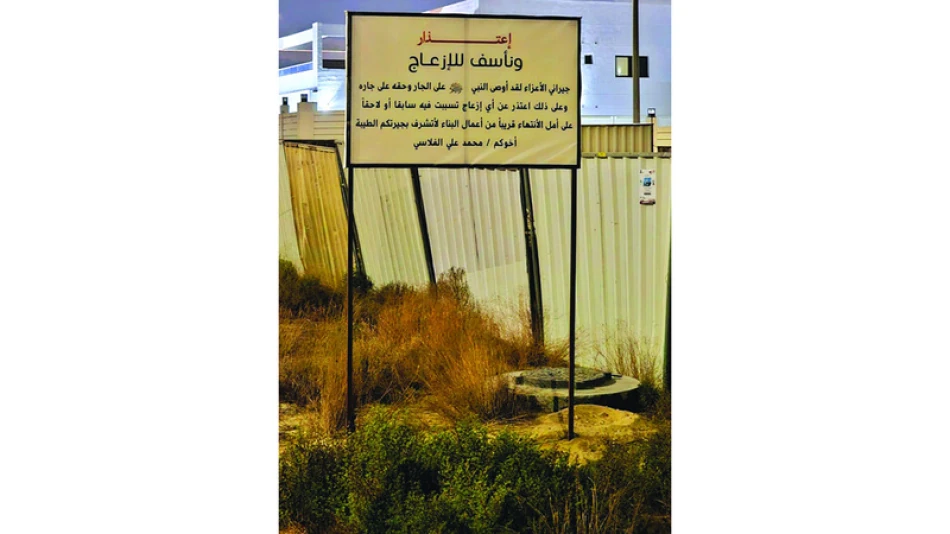
Viral Dubai Apology Wall: A Captivating Story of Remorse and Reconciliation
A Simple Apology Sign Sparks National Conversation About Community Values in the UAE
A construction apology sign posted by a Dubai resident has gone viral across UAE social media, transforming what could have been a routine neighborhood disruption into a powerful symbol of mutual respect and Islamic values. The gesture reflects deeper cultural currents in Emirati society, where traditional neighborly obligations meet modern urban living challenges.
From Construction Noise to Community Connection
Mohammed Ali Al Falasi hung a handwritten sign on the fence of his under-construction home in Dubai's Nad Al Sheba-4 area, apologizing to neighbors for any inconvenience caused by building work. The sign referenced Prophet Muhammad's teachings on neighborly rights and expressed hope for completing construction soon so he could "be honored by your good neighborliness."
What started as his wife's suggestion to be considerate of neighbors before construction began has resonated far beyond their street. The sign reads: "Apology... and we are sorry for the inconvenience... My dear neighbors, the Prophet advised about neighbors and their rights over each other, and accordingly I apologize for any inconvenience I have caused before or after, hoping to finish the construction work soon to be honored by your good neighborliness. Your brother Mohammed Ali Al Falasi."
Unexpected Community Response Reveals Social Bonds
The neighbors' reactions surprised even Al Falasi. One neighbor he had never met called to offer full support, saying "Do whatever you want, you are dear and precious." Others expressed eagerness for his family to move in, viewing his presence as a positive addition to the neighborhood.
This response demonstrates how proactive courtesy can build trust before actual relationships form—a particularly relevant dynamic in UAE's rapidly developing residential areas where new communities constantly emerge.
A Growing Trend in Urban Courtesy
Al Falasi noted he isn't alone in this approach. Another resident distributed apology cards to neighbors before beginning construction, suggesting a broader shift in community awareness. These initiatives reflect growing recognition that temporary construction disruptions require active communication rather than passive tolerance.
The phenomenon highlights several contemporary urban challenges: Dense residential development means construction noise affects more people, while diverse expatriate communities may have different expectations about neighbor communication. Traditional courtesy practices are adapting to modern living situations.
Cultural Values Meet Modern Development
Al Falasi emphasized that neighbor consideration isn't merely good manners but a moral and social obligation extending from pre-construction planning through post-completion relationships. He called for remembering prophetic teachings on good neighborliness as enduring human values that build cohesive, respectful communities.
The viral social media response—with users praising the initiative as embodying Emirati social values—suggests public appetite for visible demonstrations of community consideration. In a country experiencing rapid urban growth, such gestures serve as cultural anchors connecting traditional values with contemporary living.
Implications for Community Development
This story reflects broader trends in UAE society where individual initiatives often model desired community behavior. As residential areas continue expanding, the challenge becomes maintaining social cohesion across diverse populations with varying cultural expectations about neighbor relationships.
Al Falasi's approach—combining religious reference points, personal accountability, and proactive communication—offers a template for navigating construction-related neighbor relations. His wife's initial suggestion also highlights how family-level decision-making increasingly considers community impact.
The widespread positive response suggests residents hunger for visible demonstrations of mutual respect, particularly in newer developments where community bonds are still forming. Such gestures may become more common as social media amplifies examples of thoughtful neighbor relations, creating informal standards for community courtesy.
Most Viewed News

 Sara Khaled
Sara Khaled






